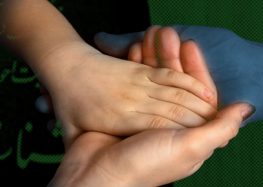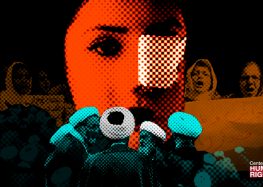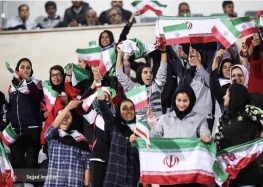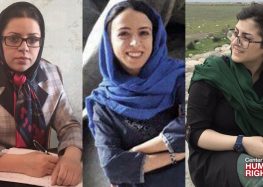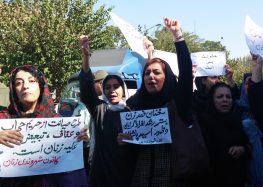Societal Demand in Iran for Female Representation in Government is Unstoppable
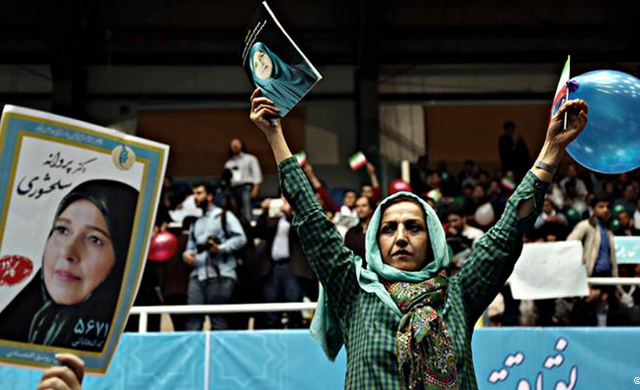
Hardliners’ Entrenched Resistance is Overcome in Polls
An overlooked outcome of Iran’s recent elections is the unprecedented success of women, who achieved voter support even though the Guardian Council, the hardline clerical body that vets all candidates, prevented huge numbers of females from running.
In the first round of the elections on February 26, 2016, 14 women* were voted into Parliament, including eight from Tehran—all of whom ran on the reformists’ Hope List. Eight women** will be competing in the second round on April 29, four of whom are running on the reformists’ list.
This is the largest number of women elected to Parliament in the history of the Islamic Republic.
Months before Iranians went to the polls to cast their votes for Parliament and the Assembly of Experts, that body that will likely choose Iran’s next supreme leader, women’s rights activists launched the Campaign for Changing the Parliament’s Male Face (CCTPMF).” Its goal was to get more female candidates elected into Iran’s male-dominated legislature.
Their efforts paid off: According to official numbers, 1,234 women registered to become candidates for Parliament—a three-fold increase compared to Iran’s last parliamentary elections in 2012, and at least 16 women applied to become candidates in the Assembly of Experts.
The successful expansion in the number of newly elected women MPs, despite the fact that hundreds of these applicants were disqualified from running by the Guardian Council, reflects the strong societal support for women in government in Iran.
Many Leading Women Applaud
“The women who have entered the Islamic Consultative Assembly [Parliament] should make the greatest effort towards realizing women’s rights. That’s why people entrusted them with their vote,” said Shahindokht Mowlaverdi, President Hassan Rouhani’s vice president for Women and Family Affairs, on March 2, 2016.
“MPs should now pass laws in line with current realities facing Iranian families,” added Mowlaverdi, who has been berated by conservative groups since taking on her post.
Women’s rights activists are also sounding more hopeful about what the incoming Parliament could achieve.
“We want people who have the will and outlook to lend serious support to the rights of women and children,” Soraya Azizpanah, a member of the board of directors of the Iranian Society for Protecting the Rights of the Child, told Shahrvand newspaper on March 5, 2016.
“If female MPs work on this in the next Parliament and manage to pass favorable laws, that would be very positive,” she said. “I believe that in previous parliamentary sessions, female MPs mostly represented the traditional segment of Iranian society, that which wants to silence women,” added Azizpanah.
“In the legislature we should be promoting laws that are a step ahead of society’s norms. It looks like if other women enter Parliament they will be able to end its decline,” she said. “We should wait and see what voices will emerge for women’s rights in Parliament.”
Azar Mansouri, a reformist female politician, wrote in a March 15 op-ed for Arman newspaper, “Considering…the need to create equal opportunities, Iranian women began an objective two-pronged effort to overcome existing legal gaps.”
“These efforts led to the election of 14 women in the first round, and eight more in the second round. We already have a record number of women in Parliament. This could be an important turning point,” added Mansouri.
Female MPs should now devise a clear strategy, women’s rights activist Ashraf Boroujerdi told the semi-official Iranian Student’s News Agency (ISNA), on March 7, 2016. “Most of the elected candidates are from the reformist camp. If they want to make an impact they should consolidate their ideas and distinguish themselves from other MPs. Many of the new MPs are young professionals sympathetic to women’s rights.”
Support from Rouhani for Women Candidates
President Hassan Rouhani also encouraged women to participate in the elections.
While registering as a candidate for the Assembly of Experts, Rouhani told reporters on December 20, 2015: “Women should be present in the elections for the Assembly of Experts and especially for [Parliament] because their presence in the mix is important for us.”
“Of course it makes no difference if a candidate is a man or woman, but if we have more women legislators, the world will have a better opinion and understanding of our country,” added Rouhani. “The world would see that things in this country are not based on gender, but merit.”
“We are not doing women a favor [by bringing them into government]. This is their natural right,” he added. “There’s no difference between women and men as far as Creation, art, intelligence and closeness to God are concerned.”
This support follows women’s rights supporters’ disappointment over Rouhani’s record of bringing women into his cabinet. While he had pledged to incorporate more women into government positions during his 2013 presidential campaign, he faced staunch opposition from the hardline-dominated Parliament. Except for the appointment of several vice presidents and a handful of governors, he ultimately failed to nominate any women to cabinet posts.
Even Ali Larijani, the conservative Speaker of Parliament who has increasingly aligned himself with the Rouhani government in the past two years, said he supported efforts to send more women to Parliament—as long as they believe in revolutionary and traditional values.
“I had a conversation with the Parliament Speaker [Larijani] and he also emphasized that the number of women MPs should increase but they should be women who are committed [to the Revolution], competent and reputable, capable of accepting this heavy [political] responsibility and at the same time carry on with their personal responsibilities [as wife and mother],” Laleh Eftekhari, chairperson of the Women’s Election Committee in Support of the Supreme Leader, told ISNA on December 20, 2015.
Eftekhari, a conservative female MP who was previously elected three times, did not gain sufficient votes to return to Parliament this year.
But Women Shut Out of Assembly of Experts
In contrast to their success in the parliamentary elections, all of the female applicants were rejected by the Guardian Council from running in the election for the Assembly of Experts. The Assembly has never included a female representative.
Nevertheless, some of Iran’s staunchest supporters of keeping women at home lost their seats in the Assembly of Experts in these elections, including Ayatollah Mohammad Yazdi, the powerful Speaker of the Assembly, who publicly criticized women for running in the elections.
Mass Disqualifications
Women’s expanded presence in Parliament came despite entrenched hardline opposition to their candidacies. The Guardian Council was determined to impede reformists from becoming a major force in the elections and to stop the advance of women candidates, eliminating scores of women from ballots across the country.
In a pre-election analysis published on January 17, 2016, ISNA noted that in Shiraz, a populous city 425 miles south of Tehran, 98 percent of the female applicants for candidacy in the parliamentary elections were disqualified, all female applicants were rejected in the major port city of Abadan, and 20 of 24 female applicants were disqualified in the Central Province of Markazi.
“The disqualifications have taken place despite women’s demand for an increased presence in Parliament and the government’s commitment to the international community to raise women’s share of Parliamentary seats to more than 30 percent,” the “I Will Be A Candidate” Committee said in a statement on January 20, 2016.
“The widespread disqualifications of women in the elections is very worrisome and it will have social consequences especially in smaller cities and provinces,” said Fahimeh Farahmandpour, the Interior Ministry’s adviser on women’s affairs, on February 9, 2016.
“If women presume that there’s a high probability that their candidacy will be rejected, they won’t even bother going through with it. This will result in more limited participation of women in the elections and eventually we might end up with even fewer women in Parliament,” she told ISNA.
Entrenched Opposition
In addition, hardliners—both male and female—vehemently and publicly criticized women for registering to become candidates.
Zahra Nasiri, a female member of the women’s branch of the Islamic Society of Students, told the Basij—a hardline volunteer militia under the authority of Revolutionary Guards—news agency that “certain groups,” including Rouhani government officials, were trying to take advantage of the elections by using slogans about having more women in Parliament.
“It’s not surprising to see feminists popping up every once in a while and shouting slogans about equal rights, but what’s unfortunate is seeing government officials supporting these ideas and allowing them to creep into government positions,” said Nasiri on December 17, 2015.
“These days it seems like the Arrogant Powers [Western governments] are trying to infiltrate our country through feminist forces,” she added.
Minoo Aslani, the female secretary general of the hardline Women’s Basij Organization, echoed Nasiri’s view in an interview with the state-run Islamic Republic News Agency (IRNA) on December 19, 2015.
“It isn’t right that some factions are forcing women to register as candidates in the parliamentary elections. This contradicts the principle of freedom of choice in our holy Islamic Republic,” said Aslani. “These actions are not only a disservice to women, they’re criminal.”
In recent weeks, controversy has developed around an insulting speech about women MPs by conservative male MP Nader Ghazipour.
“We didn’t secure the country, so that we would easily hand it over to a bunch of foxes and donkeys… Parliament is no place for women. It’s for men. Do you want women to go there and destroy our reputation?” said Ghazipour, according to the Ghanoon newspaper.
Ghazipour was echoing his mentor, supreme leader Ali Khamenei, who frequently discourages women from participating in activities outside the home.
“Housekeeping is a profession. A great profession. An important profession. A sensitive profession. A profession that builds the future,” declared Khamenei on May 5, 2013.
The 76-year-old ayatollah has consistently described Western culture as incompatible with an “Islamic-Iranian lifestyle,” focusing in particular on Western influences on the role of women in society, which he views as a dangerous force.
According to Khamenei’s worldview, women should focus their energies on their ultimate purpose: motherhood. “One of women’s greatest responsibilities is to bear children. That’s the art of being a woman,” he said on May 1, 2013.
The ayatollah has explicitly endorsed inequality to support his views. “Women’s employment is not a primary [concern],” said Khamenei on April 19, 2014, adding that “Those who make a fuss about discrimination in universities should understand that discrimination isn’t bad in all cases.”
Khamenei’s supporters are actively promoting his views on women’s rights across the country. “There are hundreds of unemployed men in the country and yet they still insist on appointing women to important posts,” said Isfahan’s Friday Prayer leader, Ayatollah Yousef Tabatabaienejad, while criticizing the appointment of female governors during a sermon on December 4, 2015.
These views were used to justify the mass disqualification of women from the February 2016 elections. But the ability of the remaining female candidates to secure votes despite the roadblocks showed that women in Iran are a force to be reckoned with.
*The fourteen women who gained seats in Parliament are: Fatemeh Zolghadr (Tehran), Tayebeh Siavoshi (Tehran), Soheila Jelodarzadeh (Tehran), Farideh Oladghobad (Tehran), Fatemeh Hosseini (Tehran), Parvaneh Salahshouri (Tehran), Fatemeh Saeedi (Tehran), Parvaneh Mafi (Tehran), Zahra Saeedi (Mobarakeh), Sakineh Almasi (Jam, Asaluyeh, Kangan and Deyr), Hamideh Zarabadi (Qazvin), Hajar Chenarani (Neishabour), Nahid Tajeddin (Isfahan) and Minoo Khaleghi (Isfahan).
**The eight women who will be competing in the second round of the parliamentary elections on April 29, 2016 are: Shahla Mir Galou Bayat (Saveh), Khadijeh Rabieefar (Boroujen), Sara Fallahi (Ilam), Somayyeh Mahmoudi (Shahreza), Azam Mohammadnia (Khorramabad), Fatemeh Maghsoudi (Boroujerd), Masoumeh Aghapour (Shabestar) and Zahra Saee (Tabriz).

